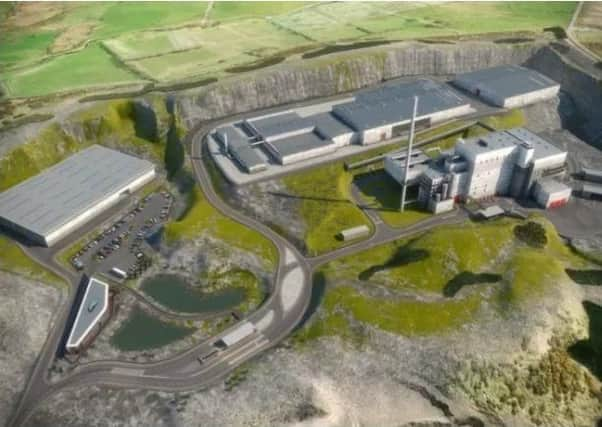INCINERATOR RULING: SF '˜beating the air' over BIIC calls


It comes after yesterday’s ruling in Belfast High Court, when a judge blocked a decision by a senior civil servant to approve a controversial waste incinerator plant in Co Antrim.
The landmark judgement could have major ramifications for how Northern Ireland’s rudderless public services are run amid the ongoing power-sharing impasse.
Advertisement
Hide AdAdvertisement
Hide AdIn the wake of the ruling, Sinn Fein’s national chairman Declan Kearney has renewed calls for the re-establishment of the British-Irish Intergovernmental Conference (BIIC).
But TUV leader Jim Allister has accused SF of “beating the air”, adding that the BIIC has “no capacity, legally or otherwise, to take any decisions”.
The body, set up as part of the Belfast Agreement, is tasked with promoting bilateral co-operation on matters of mutual interest between the British and Irish Governments, including, in particular, issues in relation to NI.
Speaking on BBC’s Good Morning Ulster, Mr Kearney said that yesterday’s court ruling “highlights the absolute imperative of moving as quickly as possible towards the establishment of the British-Irish Intergovernmental Conference to ensure we have requisite political oversight for our process in the absence of the political institutions”.
Advertisement
Hide AdAdvertisement
Hide AdWhen it was pointed out by presenter Karen Patterson that the BIIC does not deal with non-devolved matters, Mr Kearney said the “scope and remit” of the body should be re-examined.
Dismissing Mr Kearney’s suggestion, North Antrim MLA Mr Allister told BBC’s The Nolan Show: “Under the Belfast Agreement, the powers of the conference are very specified. They are to bring forward views and proposals on non-devolved issues, so even in that realm they have no decision-making powers.
“Decisions are made by the sovereign government, which is the UK government.
“None of that applies to devolved issues, such as this waste incinerator plan. So it is patent nonsense to talk about British-Irish Intergovernmental Conference having any capacity on any of these matters.”
Advertisement
Hide AdAdvertisement
Hide AdThe BIIC was established under Strand Three of the Belfast Agreement.
It replaces the Anglo-Irish Intergovernmental Council, set up as part of the Anglo-Irish Agreement in 1985.
The conference last met in Dundalk in 2007.
It is supported by officials of the British and Irish Governments, including by a standing joint Secretariat of officials dealing with non-devolved Northern Ireland matters.
As contained in the Belfast Agreement: “In recognition of the Irish Government’s special interest in Northern Ireland and of the extent to which issues of mutual concern arise in relation to Northern Ireland, there will be regular and frequent meetings of the Conference concerned with non-devolved Northern Ireland matters, on which the Irish Government may put forward views and proposals.”
Advertisement
Hide AdAdvertisement
Hide AdSenior civil servants in NI have been taking the majority of decisions within departments since Stormont collapsed 16 months.
While the UK government has stepped in on occasion to make significant cross-governmental decisions, such as setting a budget and enabling the collecting of rates, the civil service has effectively been in charge, as Stormont exists in a limbo land between devolution and direct rule.
However, Mrs Justice Keegan, presiding in a judicial review case, found that Peter May, the permanent secretary of the Department for Infrastructure, did not have the power to approve the planning application for the £240 million incinerator facility on the old Hightown quarry site near Newtownabbey.
She said such a decision should have been made by elected ministers.
Advertisement
Hide AdAdvertisement
Hide AdDavid Sterling, the head of the Northern Ireland Civil Service and the man running Stormont amid the impasse, is now assessing the impact of the judgment.
A spokesman for Mr Sterling and The Executive Office said: “We are considering today’s judgment.”
The Northern Ireland Office said Secretary of State Karen Bradley was also considering the decision.